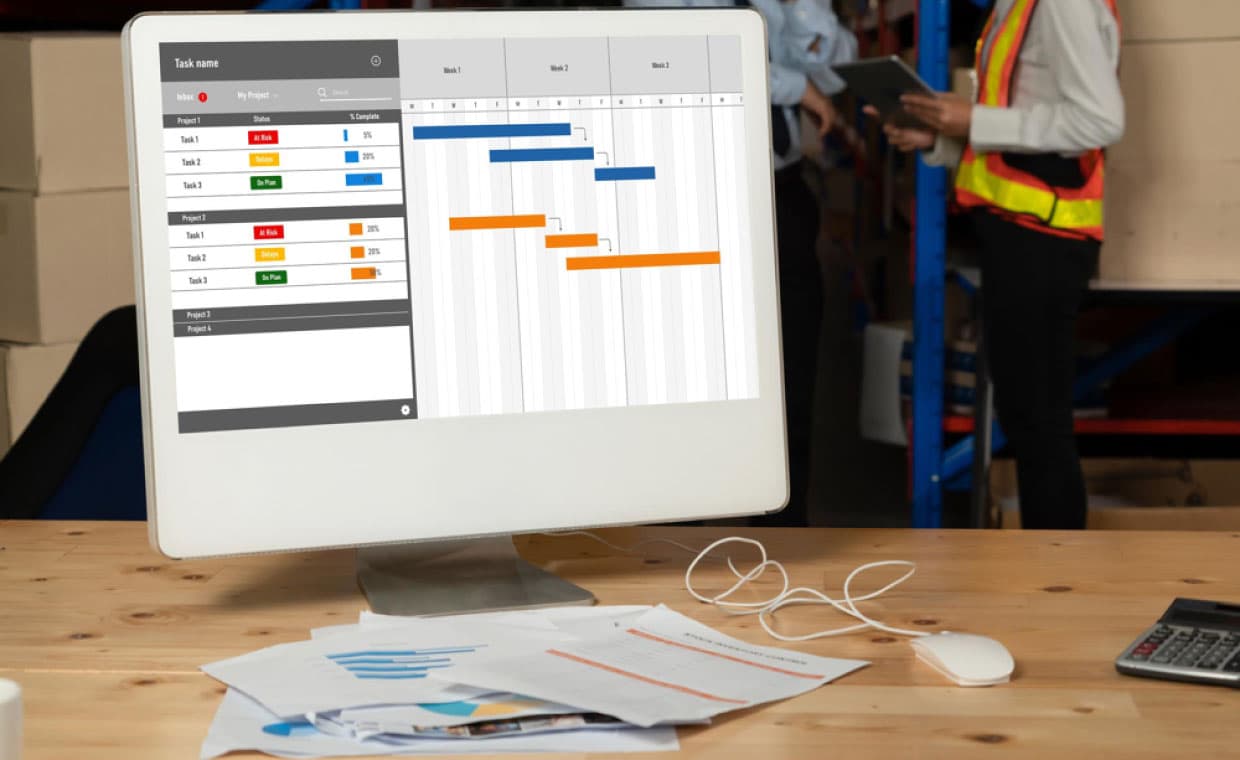
In the construction industry, where every project comprises numerous moving parts and inherent risks, managing these risks effectively is crucial for the safety of personnel and the successful completion of projects. Advanced construction scheduling software has emerged as a critical tool in this endeavor, providing project managers with the capabilities to foresee potential issues and mitigate them before they escalate.
The Role of Construction Scheduling Software in Risk Management

Construction scheduling software has transformed the traditional approach to project management by incorporating sophisticated planning and tracking tools. This technology enables managers to craft detailed project schedules that account for every aspect of the construction process, from resource allocation to timeline management.
The application of construction scheduling software in risk management is particularly valuable. By allowing project managers to visualize the entire project timeline and workflow, the software helps identify potential overlaps or bottlenecks that could lead to safety issues or delays. Moreover, it facilitates the optimal use of resources, ensuring that no part of the construction team is overstretched, which can lead to accidents and errors.
Enhancing Safety and Efficiency on the Jobsite

Proactive Problem Solving: One of the key advantages of using construction scheduling software is its proactive approach to problem-solving. By setting up early warning systems within the software, project managers can receive alerts about potential issues such as scheduling conflicts, delayed material deliveries, or manpower shortages. This early detection allows for timely interventions that can keep the project on track and prevent minor issues from becoming major setbacks.
Streamlined Communication: Effective communication is vital for risk management in construction projects. Construction scheduling software often includes integrated communication tools that allow for seamless information sharing between all parties involved in the project. This ensures that everyone from the builders on the ground to the stakeholders in the office is on the same page about the project’s progress and any potential risks that might arise.
Document Control: Keeping accurate and up-to-date records is another critical aspect of risk management that construction scheduling software enhances. By centralizing document management within the software, all project documentation such as compliance certificates, safety protocols, and inspection reports are maintained in one place. This accessibility not only improves workflow efficiency but also ensures that the project complies with industry regulations and safety standards.
Tackling Challenges in Implementation

Despite its benefits, integrating construction scheduling software into daily operations can present challenges. Resistance from teams accustomed to traditional methods and the initial financial investment in software can be significant hurdles.
Facilitating Team Buy-In: Addressing skepticism from project teams involves demonstrating the tangible benefits of the software through training sessions and pilot projects. Showing how the software can make their work easier and safer can help win team support.
Cost-Benefit Analysis: While the upfront costs of implementing advanced scheduling software can be considerable, the long-term savings in terms of reduced delays, fewer accidents, and lower legal liabilities often justify the investment. Detailed cost-benefit analyses can help decision-makers see the economic advantage of adopting this technology.
Conclusion
Construction scheduling software is not just a tool for organizing project timelines—it’s a comprehensive solution for mitigating risks on the jobsite. By enhancing project visibility, improving communication, and ensuring compliance with safety standards, this software plays a pivotal role in maintaining project integrity and safety. As the construction industry continues to evolve, the importance of implementing advanced technological solutions like construction scheduling software will only grow, proving essential for any construction firm aiming to enhance safety and efficiency in their operations.
Also Read: 7 Key Factors Redefining Project Success Metrics!






























